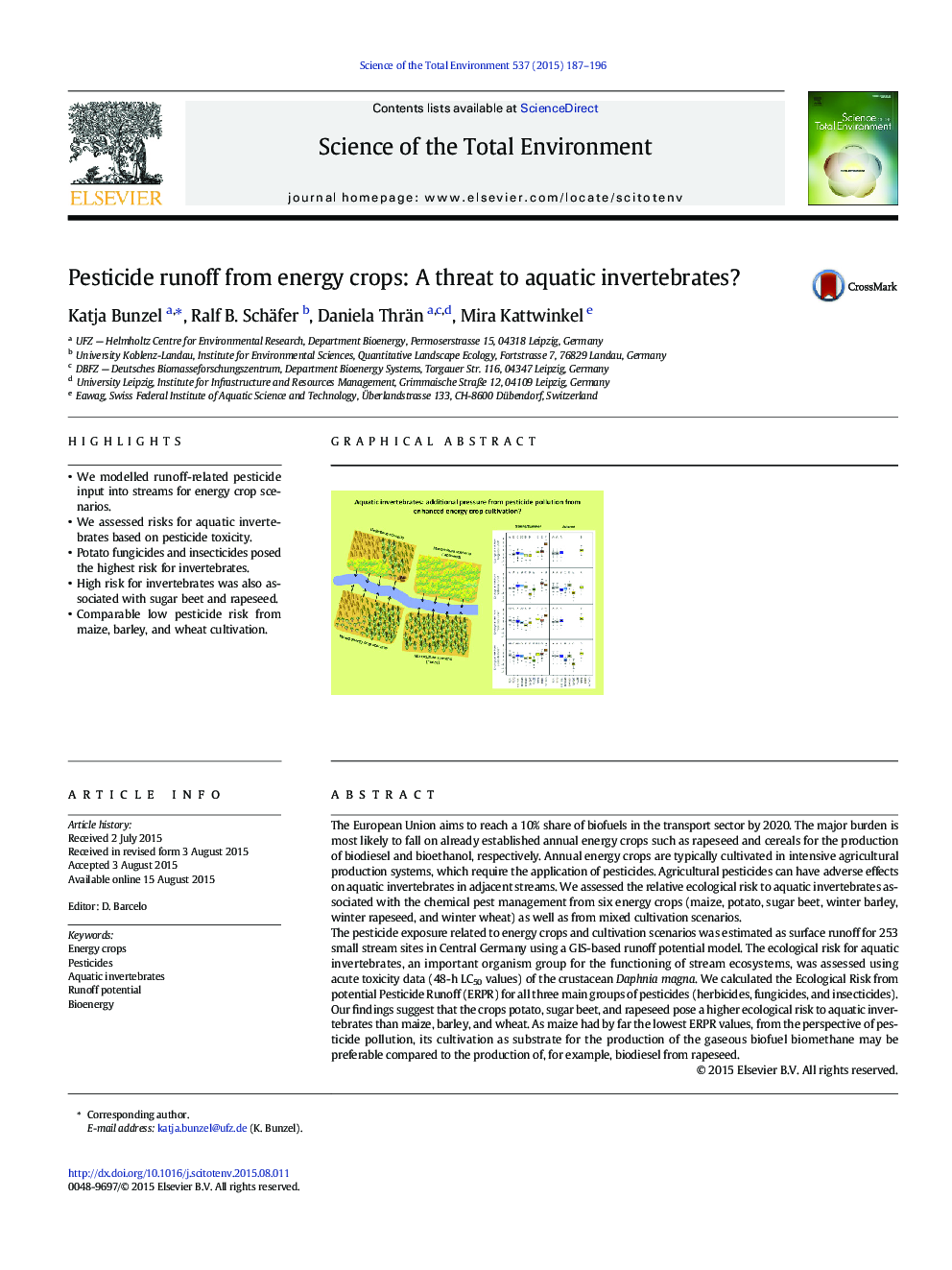| کد مقاله | کد نشریه | سال انتشار | مقاله انگلیسی | نسخه تمام متن |
|---|---|---|---|---|
| 6325461 | 1619747 | 2015 | 10 صفحه PDF | دانلود رایگان |
- We modelled runoff-related pesticide input into streams for energy crop scenarios.
- We assessed risks for aquatic invertebrates based on pesticide toxicity.
- Potato fungicides and insecticides posed the highest risk for invertebrates.
- High risk for invertebrates was also associated with sugar beet and rapeseed.
- Comparable low pesticide risk from maize, barley, and wheat cultivation.
The European Union aims to reach a 10% share of biofuels in the transport sector by 2020. The major burden is most likely to fall on already established annual energy crops such as rapeseed and cereals for the production of biodiesel and bioethanol, respectively. Annual energy crops are typically cultivated in intensive agricultural production systems, which require the application of pesticides. Agricultural pesticides can have adverse effects on aquatic invertebrates in adjacent streams. We assessed the relative ecological risk to aquatic invertebrates associated with the chemical pest management from six energy crops (maize, potato, sugar beet, winter barley, winter rapeseed, and winter wheat) as well as from mixed cultivation scenarios.The pesticide exposure related to energy crops and cultivation scenarios was estimated as surface runoff for 253 small stream sites in Central Germany using a GIS-based runoff potential model. The ecological risk for aquatic invertebrates, an important organism group for the functioning of stream ecosystems, was assessed using acute toxicity data (48-h LC50 values) of the crustacean Daphnia magna. We calculated the Ecological Risk from potential Pesticide Runoff (ERPR) for all three main groups of pesticides (herbicides, fungicides, and insecticides). Our findings suggest that the crops potato, sugar beet, and rapeseed pose a higher ecological risk to aquatic invertebrates than maize, barley, and wheat. As maize had by far the lowest ERPR values, from the perspective of pesticide pollution, its cultivation as substrate for the production of the gaseous biofuel biomethane may be preferable compared to the production of, for example, biodiesel from rapeseed.
334
Journal: Science of The Total Environment - Volume 537, 15 December 2015, Pages 187-196
